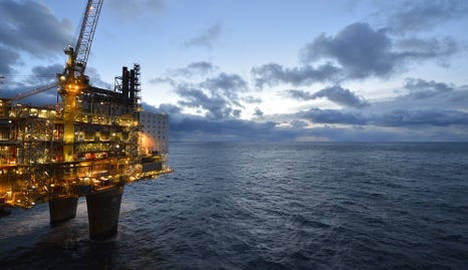Torbjørn Kjus, an analyst for DNB Markets, cited the slump in China’s economy and high production from the Opec club of oil producing countries and US shale oil producers.
“An oil price of $30 would be absolutely catastrophic for Norway,” he told Norway’s Dagens Næringsliv business newspaper. “We would not shut down out existing production, but there would be no more investment.”
Kjus said that much would depend on how China responded to its economic problems, whether it would move to intervene and stimulate the economy or leave markets to run their course.
Bjarne Schieldrop, a commodities analyst at SEB bank, agreed that prices could fall lower in the coming months.
“American shale oil production has been much better than expected, despite lower oil prices, and OPEC production has increased sharply during the past year,” he told E24.
The price of a barrel of North Sea crude has halved from $105 a year ago to $49 today.



 Please whitelist us to continue reading.
Please whitelist us to continue reading.